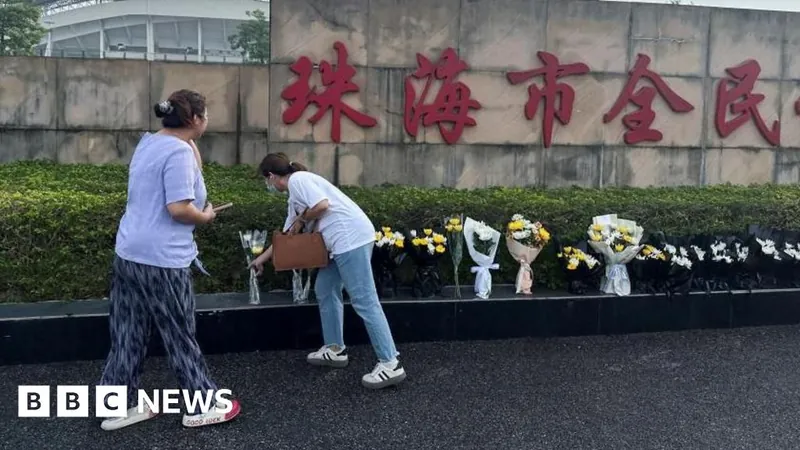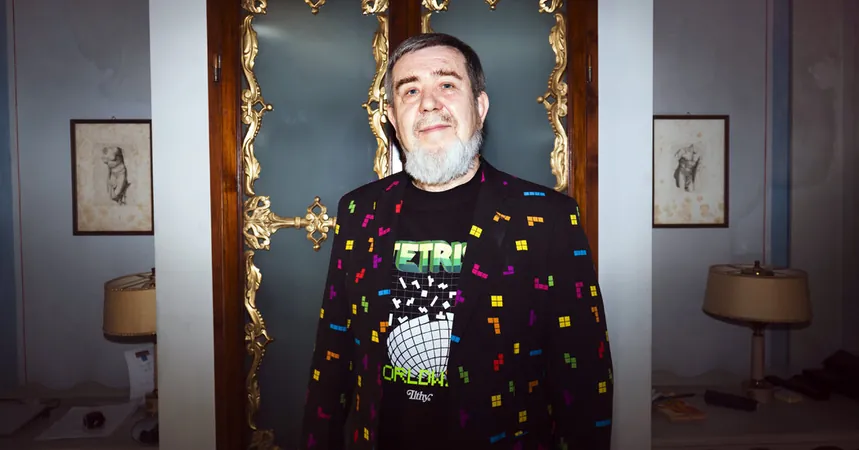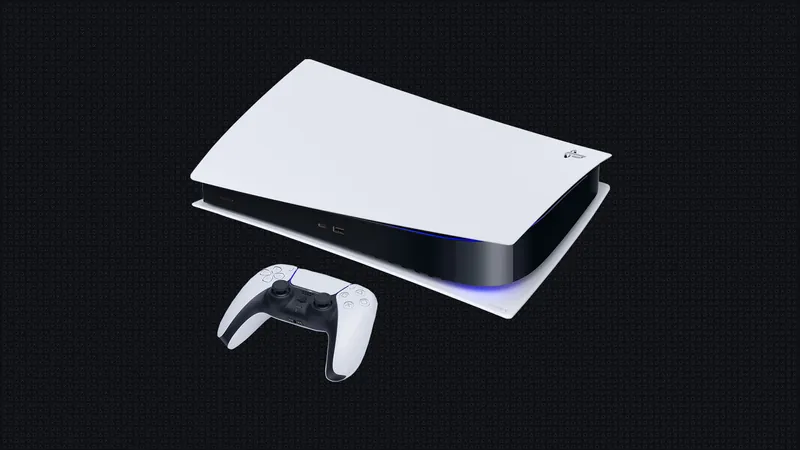
Mass Tragedy in Zhuhai: The Deadly Car Attack That Has China Reeling
2024-11-13
Author: Chun
Mass Tragedy in Zhuhai: The Deadly Car Attack That Has China Reeling
A horrific car attack in Zhuhai, southern China, recently claimed the lives of 35 people and has ignited a nationwide conversation about public violence and the motivations behind such tragic acts. This incident has raised eyebrows as concerns regarding a rising trend of violent attacks across the country have come to light.
The driver, a 62-year-old man who reportedly acted on frustrations stemming from a divorce settlement, rammed his vehicle into pedestrians at a local stadium during an evening event. This shocking act is being described as the deadliest act of public violence in China in decades, coming just months after other notable attacks, including a frenzy of stabbings at a supermarket in Shanghai and an assault at a school in Beijing.
Amid widespread outrage, President Xi Jinping has promised 'severe punishment' for the perpetrator, who remains in a coma due to self-inflicted injuries. As the nation grapples with the aftermath of this tragedy, many on social media platforms have begun to explore the concept of 'taking revenge on society' — where individuals direct their anger and grievances towards innocent strangers.
A notable Weibo comment that gained traction expressed disbelief over the driver’s justification, saying, 'How can you take revenge on society because your family life is not going well? You’ve taken the lives of so many innocent people; will you ever have peace of mind?' Others pointed to systemic issues within society, such as economic instability and job insecurities, arguing that these factors contribute to an environment ripe for hostility and violence.
This deadly incident followed a wave of violent acts this year, including a mass stabbing in Shandong in February and a series of attacks in various public spaces across major cities. Vigilance around the mental health of individuals and the prevailing societal pressures has become a pressing issue, as calls for a deeper examination of the factors contributing to such violence grow louder.
Official media coverage following the incident has been notably restrained, with multiple reports indicating that high-level censorship stifled discussion around the attack. While some Chinese media outlets have eventually reported on the event, state broadcaster CCTV focused instead on President Xi's impending trip to South America and a concurrent military airshow in Zhuhai, demonstrating the priorities of those in power amidst a national tragedy.
Public sentiment has been overwhelmingly against the perceived indifference of authorities, with many claiming a lack of transparency regarding casualty figures and limited information rapidly released in the immediate aftermath of the attack. One individual shared their grief over losing a family friend who was exercising at the time, lamenting the media’s scant coverage, which they felt trivialized human life in the face of shiny military exhibitions.
In the chaos following the attack, another person shared their heartfelt account of seeing a loved one critically injured, exposing the emotional toll and fear that has gripped those involved. 'Up to 10 hours after it happened, there were no statistics on the casualties...,' they noted.
As the nation mourns and searches for answers, the Zhuhai car attack serves as a grim reflection of deeper societal issues that demand urgent attention. With discussions around mental health, economic disparities, and public safety at the forefront, one can only hope that the tragic loss of lives will lead to meaningful conversations and reforms going forward.




 Brasil (PT)
Brasil (PT)
 Canada (EN)
Canada (EN)
 Chile (ES)
Chile (ES)
 España (ES)
España (ES)
 France (FR)
France (FR)
 Hong Kong (EN)
Hong Kong (EN)
 Italia (IT)
Italia (IT)
 日本 (JA)
日本 (JA)
 Magyarország (HU)
Magyarország (HU)
 Norge (NO)
Norge (NO)
 Polska (PL)
Polska (PL)
 Schweiz (DE)
Schweiz (DE)
 Singapore (EN)
Singapore (EN)
 Sverige (SV)
Sverige (SV)
 Suomi (FI)
Suomi (FI)
 Türkiye (TR)
Türkiye (TR)